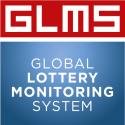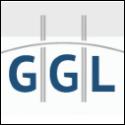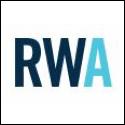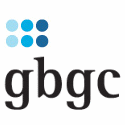Round-up: Navigating the Present and Future of the Gambling Sector: Web 3.0
GLOBAL (March 10, 2023) — On 6 February 2023, DLA Piper’s gambling and regulatory lawyers from across Europe united ahead of the #ICE Conference taking place in London to address the latest gambling industry issues and developments in their jurisdictions.
We were delighted to have Matthew Gardiner, the founder of A1 AI, join as our keynote speaker to provide insight on the opportunities for the gambling sector given by Web 3.0.
Here we provide some key takeaways from the panel discussion:
Overview of the gambling markets
Spain
Paula González de Castejón reported that there were no new regulations in Spain in 2022 but indicated that there are currently two draft regulations to improve controls on sports manipulations, and betting fraud and to expand protections to prevent compulsive gambling behaviours. Paula Gonzales de Castejón also indicated that it is unclear whether the new regulations will be passed before the next elections, as this year there will be regional elections on May 2023 and national elections in December.
Spain introduced wide-reaching legislation in November 2020 which restricted gambling ads on television between 1 to 5 am and banned the sponsorship of football teams by gambling operators. While there was enforcement action in 2022 for breaches of the new tougher rules, Paula Gonzales de Castejón indicated that the fines issued to date have been quite conservative and more of a “warning” by the regulator ahead of, what she anticipates will be tougher enforcement for any infractions of the rules in the year ahead.
Belgium
Belgium has a restricted market for gambling licences. Kaat Scheerlinck reported that there is currently draft legislation in Belgium which will introduce an almost complete ban of gambling advertising in the territory. It is currently envisaged that there will be an exception for gambling ads which are on the social media pages of gambling operators which last no more than 5 seconds (i.e. not targeted).
In 2023, Kaat Scheerlinck also informed us that the Gaming Commission in Belgium are expected to issue advice on the legal framework for online games of chance which is likely to include, amongst other things, an increase to the age restriction to 21 for online games of chance.
Portugal
Portugal has an open market for gambling licences. Applications can be made for gaming and sports betting. The market mainly consists of small domestic operators. In 2023, António Moura Portugal informed us that the Government will launch the revision procedure of the online gambling framework and that there will be room for advocacy and presentation of views by international operators willing to set up in Portugal. The main issue will be the revision of tax on sports betting but he also anticipates an opening-up of this market for B2B operators.
India
Anshul Asri informed us that gambling and betting was entirely restricted in India until 2 years ago (barring in a couple of India states where casinos were permitted to operate, namely Goa and Sikkim). However, the market is beginning to open up and certain types of skill based gaming (including certain card games and fantasy sports) are now permitted in an increasing number of Indian states.
Certain types of “Skill-based gaming” will not be legal categorised as gambling in some states. However, Anshul Asri reported there are no clear regulations or guidelines yet. Therefore Anshul Asri informed us that in 2023 we can expect to see further development of India’s legislative framework for skill- based games. In the meantime, he indicated that: (1) Poker & Rummy and (2) Fantasy games (especially fantasy-based cricket games) have been approved by decisions of the High Courts of certain Indian States, with a final decision by the apex court i.e Supreme Court of India expected this year.
Hungary
There is currently a state monopoly in Hungary. However, Viktor Radics reported that the Hungarian regulator intends to open-up the sports betting market in Hungary in 2023. However, the new regulations require unlicensed operators who have been licensed elsewhere in the EEA to supply evidence to the Hungarian regulator confirming that they have at least 5 years of trading in the EEA without any regulatory non-compliance (however minor). This, somewhat unusual requirement, has been met by scepticism in the jurisdiction. In 2023, Viktor Radics predicts that there will be civil, regulatory and criminal disputes regarding this rather “unorthodox” licensing regime.
Austria
Armin Redl reported that there have been a large number of claims by consumers in the Austrian market against the online gambling operator due to the current (partially state-owned) gambling monopoly, which allows players to claim back losses for up to a 30 year period.
Sports betting in Austria is a game of skill falling outside this gambling monopoly. Licenses are granted for land-based operator for the territory of a specific province, while online sports betting operator are not subject to the respective laws and therefore cannot apply for a license.
In 2023, Armin Redl informed us that we can expect that there will be a tender process for the (single) lottery and online gaming license in Austria, currently held and operated by the monopolist.
Germany
Christoph Engelmann reported that in January 2023 the new central gambling authority took over the main licensing tasks, including licensing for virtual slots and sports betting. In addition, the new authority issues blocking orders against payment service providers and internet access providers. Germany is a highly regulated market and Christoph Engelmann indicated that the new regulator is actively monitoring the market for non-compliance. As a result of the new legislation there is, amongst other things: (1) a heavy burden for licensed gambling operators in terms of carrying out compliance work and ongoing reporting to the regulator; and (2) now an official “living” whitelist of licensed gambling operators in Germany.
Netherlands
While the Dutch Regulator anticipated some advertising from gambling operators following the opening up of the market on 1 April 2022 by the Remote Gambling Act (KOA)). It has been widely reported that the regulator in the Netherlands was not prepared for the volume of online advertising content that was generated by the sector. Richard Van Schaik informed us that we can expect parliamentary procedure to commence in “coming weeks” to introduce an online gambling ban for untargeted gambling ads in this territory. He also indicated that there is likely to be a carve out for existing sports sponsorship deals up to 2023.
Italy
Giulio Coraggio reported that in Italy all gambling licences have been extended for a further 2 years without a re-tendering process. He also informed us that targeted gambling ads prohibited, and certain indirect gambling ads, are now prohibited in Italy.
Keynote – Matthew Gardiner
Matthew Gardiner Founder of #A1 AI. provided his insight on the wide range of opportunities for the gambling sector given by Web 3.0. For more insights from Mathew Gardiner.
Matthew Gardiner sits on several advisory boards and has invested in and advised leading Web3, NFT, Metaverse, digital asset and DeFi exchanges, platforms and projects. He is a former Big4 Banking & Capital Markets consultant and frequently consults on the transition from Web2 to Web3 with Tier 1 banks, FTSE 100 companies, institutional investors, regulators and their legal counsel around the globe.
Author: Ally Clark
Tags: latest gambling industry issues, developments in various jurisdictions





























